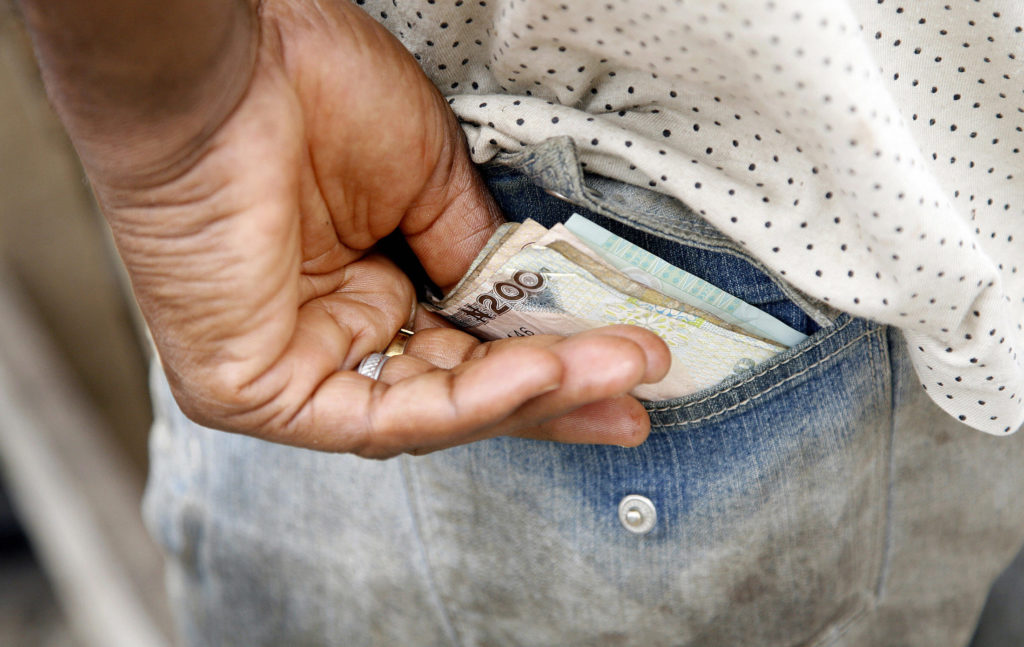The Conference Of Nigeria Political Parties (CNPP) has commended the Central Bank of Nigeria (CBN) over its decision to redesign the country’s denominations of the Naira notes N200, N500, and N1,000 banknotes ahead of the 2023 general elections, saying that only vote buyers will criticise the plan.
The CNPP in a statement by its Secretary General, Willy Ezugwu, explained that only politicians who intended to buy votes and financially induce electoral officials, and those who are ignorant of the import of the policy or beneficiaries of proceeds of crimes, including drug barons and kidnappers, will kick against the move by the CBN.
According to Ezugwu, “the effort of the CBN to control the amount of money in circulation, where N2.7 trillion out of the N3.3 trillion currency in circulation was said to be outside the vault of commercial banks across the country, and are found to supposedly be held by members of the public, is of high risk for the country’s economy and her internal security.
He said: “It is therefore obvious that many politicians, especially since 2015, amassed illicit wealth and deplated the national commonwealth to the extent that the currency in circulation has more than doubled since 2015, rising from N1.46 trillion in December 2015 to N3.2 trillion as of September 2022, according to the CBN data”.
“Certainly, this is unacceptable in any economy controlled by sane financial experts”, he added.
“The CNPP is glad that the timing for this Naira notes redesign is right as there is no better time than in an election year, especially where politicians have made vote-buying an alternative to convincing the electorates through their track records and capacity to govern beyond rhetoric as well as a commitment to selling the manifestos of their political parties during campaigns.
“In recent times, rather than candidates and their supporters work towards convincing electorates to vote for their preferred political parties, they resort to use of derogatory words against the opposition or fan the embers of ethnicity and religion.
Chief Ezugwu continued: “So, as dramatic as the move may seem, the CNPP is totally in support of the CBN and the CBN Governor, Mr Godwin Emefiele on this policy initiative and hereby call on all security agencies, including the Directorate of State Services (DSS), the Economic And Financial Crimes Commission (EFCC) and the ICPC to redouble efforts to reduce insecurity and electoral corruption by placing all politicians contesting in the 2023 general elections on perpetual surveillance.
“We urge the anti-graft units of all security agencies and commissions to use the opportunity created by the new and existing currencies exchange window from December to January 31, 2023 when the existing currencies shall cease to be a legal tender, to monitor illicit campaign financing, money laundering, terror financing, rasom to hostage takers and drug barons.
“In the same vein, bank managers should be banned by the CBN from any form of home delivery of cash to citizens and corporate organizations until after February 1, 2023 to ensure that the country reaps the gains of the CBN monetary policy.
“We urge the CBN to ensure that all exchanges of old notes with new notes should go through the bank accounts of the individuals exchanging large sums of money to as part of efforts to track illicit funds as such individuals and corporations can be made to explain how they came about the large sums of monies to security operatives, especially the EFCC.
“We therefore call on all well-meaning Nigerians, patriotic Whistleblowers and security agencies to ensure that this lifetime opportunities leads to sanity in the Nigerian economy and the political arena as part of efforts in deepening democracy and reduced the number of drug lords and corrupt politicians in office from 2023 general elections.
“We equally commend President Muhammadu Buhari for his approval of the planned redesign of the currency notes, especially at this time.”
Source: Guardian.ng

